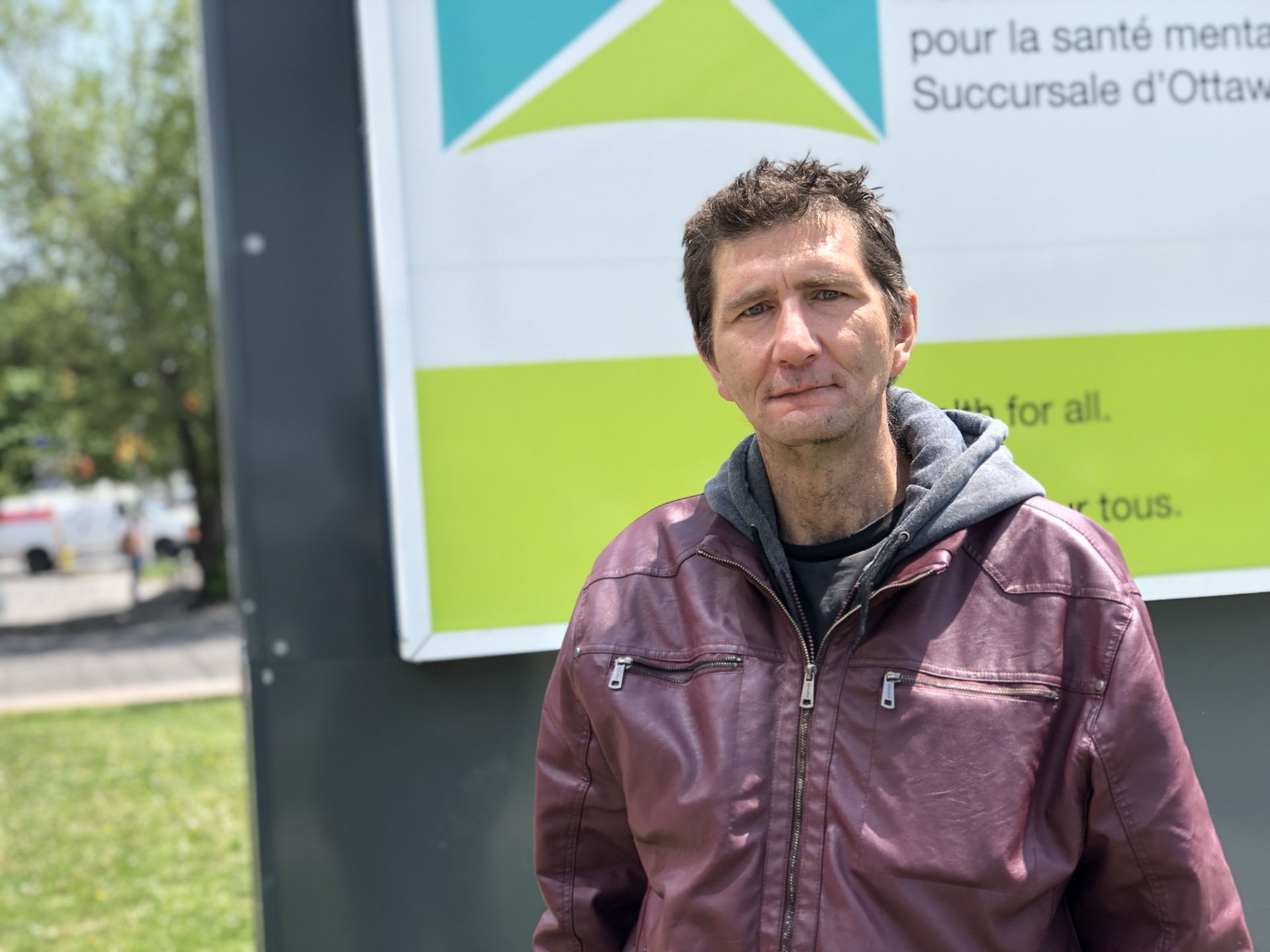Menu
Close

Finding stability and mental health with the help of CMHA Ottawa
First-person: Aaron James shares the story of his journey to recovery
Content warning: This story contains frank references to self-harm.
I was first diagnosed with mental illness back in 2001 when I was 26 years old. At the time, I had completed work on international human rights and the environment when the reports of the wars I was working on burned me out. No doubt, I had preexisting conditions earlier than that, but my crisis and eventual psychosis were triggered by that work.
I have self-harmed about 70 times, getting progressively worse over time. Unfortunately, my schizoaffective disorder and the scars pose real barriers to work, housing and community. Other than CMHA, there are few other agencies who have the capacity to work at – and in many cases, overcome – those barriers to mental health and community participation.
I had moved to Ottawa to do my doctorate in geography, but I got sick in the process. When I finally got help from CMHA Ottawa in 2012, I had been back and forth from the hospital many times. My despair kept up, I was living in fear, not sure about my outcome.
I was assigned a case worker through the hospital outreach door, known as the Familiar Faces program. I met with my first case worker, Rebecca M, regularly. I needed stable long-term supported housing because I had trouble taking care of my basic needs. My case worker brought me to a supported living residence where I stayed for 10 years. I am very grateful for that because I was rather thin and not eating well. The move helped to stabilize me on my medications, so I had regular meds and mealtimes, which established a routine in my life – I could not put off my meds.
Later, my CMHA Ottawa case worker, Noor, also helped get me on ODSP which alleviated some of the fears I had about my future. I knew my rent would be covered so I could focus on my recovery. Various case workers I met also encouraged me to take a role in the community.
Because of my scars I was reluctant to take on anything and for years I stayed isolated. With the encouragement of the staff at CMHA Ottawa, I slowly got over my scars and took part in various community and CMHA activities. I did attempt self harm several times after that, but with the meds, support and stability I got from my psychiatrist, Dr. Druss, CMHA Ottawa, and from living in supported residence, my moods and anxiety improved and, while my psychosis persists, I gained tools through CBT for psychosis from Dr. Mercer, through CMHA Ottawa.
As I became more involved with the agency, I joined the Peer Engagement Advisory Council (PEAC). With the support of Jacalyn Ball, the Board of Directors, management, staff and, most especially my peers, I found my way. It has so far been a fulfilling experience in which I’m surrounded by wonderful people.
We meet monthly to review issues and policies in the agency. I started keeping our meeting minutes, and became involved in various processes, including the rollout of virtual care, housing and accreditation. Through PEAC, we are enabled as clients the opportunity to shape policies and practices through sharing our experiences and perspectives. These changes impact other peers positively as well, including clients having access to technology, such as smartphones, so urgently needed for clients to maintain vital connections to support, such as psychiatrists, GPs, and social workers, not to mention crisis lines.
I have also participated in various groups at CMHA Ottawa, where we learned from other clients’ stories and facilitators’ training. The camaraderie I received was both a source of support and encouragement and let me know I was not alone.
Now that the pandemic is mostly behind us, I volunteer as a food sorter at the Ottawa Food Bank. I remain involved in various projects through PEAC and groups in the agency.
Thanks to lots of hard work and the support I received from CMHA Ottawa, I have achieved stability with my medication, housing, and life in general. I am walking regularly and my sleep is getting better. I hope to take on more responsibilities with the food bank and community, walk more, and find even more stable housing, where I assume more household chores.
My parting advice to other clients: I would strongly encourage you to not give up participating in CMHA Ottawa activities. It’s a supportive and accepting space for you to take steps toward playing a role in your community.
—Aaron James
This story originally appeared in the CMHA Ottawa 2022-2023 annual report. Find it here.
To donate to CMHA Ottawa and help fund programs and services like those mentioned in Aaron’s story, please visit our page on CanadaHelps.